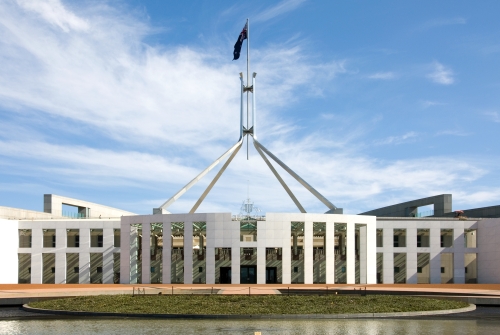I don’t mind talking about politics.
After all, taxes, immigration and new legislation does affect everyone.
But there are so many problems with Aussie politics.
Maybe the new leadership change is a good start.
But with a new leader, how does this change the Australian landscape? How will it affect businesses, stocks and Australian relations with other nations?
Will the change hurt or benefit the Liberals in the upcoming election?
Before we attempt to answer that, let’s take a look around the web at what others are saying about Scott Morrison, or ‘Scomo’.
Is Scomo straining Australia-China relations?
The media couldn’t resist…
The leadership change finally (and probably briefly) put the political spotlight on Australia for a change.
I’m sure reporters have gotten tired of writing nothing but Trump stories.
And in the last few days, there has been no shortage of opinions. Most (that I could find) weren’t exactly positive.
From the ABC:
‘In Australia’s far north, Darwin’s Northern Territory News ran a front-page message for the nation’s ruling politicians on Friday, as they mobilized in Canberra to give the country its sixth prime minister in just 11 years.
‘“HANG YOUR HEADS IN SHAME” it said, describing events in the capital this week — in which the ruling Liberal Party switched its leader and thereby changed prime ministers — as “nothing short of disgraceful.”
‘Online, an Australian satirical website, The Shovel, summed up the national mood in a more humorous manner in a story headlined “Nation Just So Over This.”’
Then there was this from The New York Times:
‘Not a single Australian prime minister has completed his or her full term in more than a decade. The frequent upheavals, experts said, have left foreign allies uncertain and voters angry when elected leaders are ousted in back-room coups. And compared to previous “spills,” as they are known, this week’s contest was especially messy and unpredictable.’
Speaking of Australian relations, I read one article which said Scomo was outright bad news for China.
From the South China Morning Post:
‘Under Turnbull, Morrison was a key member of the government responsible for introducing new foreign interference laws earlier this year that have strained relations with Beijing.
‘In his own capacity as a minister, Morrison, who belongs to his party’s conservative wing, has both championed greater economic engagement with China and blocked Chinese investment on national security and protectionist grounds.
‘Just on Thursday, Morrison, while carrying out a brief stint as acting minister for home affairs, announced that Chinese telecom firm Huawei would be barred from Australia’s 5G network.’
Yet you could argue anyone else would have done the same. [openx slug=inpost]
The job to build an important communication network is something most countries keep in domestic hands.
And while I doubt Huawei is a real national threat, it’s a view the opposition can puff up and sell to a discontented public.
But I have to agree with the mainstream media on one thing. The leadership change is an unnecessary distraction from the pressing issues at hand.
The real problem with politics is not the leaders or the policies. Rather, it’s the motivations which lead to leadership changes and inconsistent policies.
With a term of just four years, what can politicians realistically do? If they want to improve the economy, promote jobs and raise living standards, they need a whole lot more than four years.
To get that extra time, politicians typically pander to the masses.
And sometimes it’s not even the majority they’re trying to please. Rather, it’s just the loudest voices.
So rather than talking about a defunct Liberal party, why isn’t the media talking about the destructive incentives that sway every political party?
But you probably already know the answer.
How is Scomo affecting the stock market?
Much like politicians, investors love to react to political changes.
In the US, when Trump was elected to office, the stock market dropped immediately only to rise for months on end.
In contrast, the largest 500 Aussie stocks have barely moved since the leadership change. And I doubt any party change will affect our market long-term.
What’s more important is the businesses themselves.
In a CNBC interview legendary investor Warren Buffett said:
‘When I was a kid, every time a Democrat got elected…there was a wake in our house, and my father would start storing sugar in the basement. So, I’ve learned to not put too much weight in any given election.’
Throughout his investing lifetime, Buffett has seen 12 different US presidents come and go. In that same time, the Dow Jones has risen roughly 5-fold.
Why? American businesses and entrepreneurs continue to compete, innovate and improve. The rise of stocks had very little to do with politics.
And I expect it’s the same deal for Australia.
It’s business as usual.
Your friend,
Harje Ronngard
